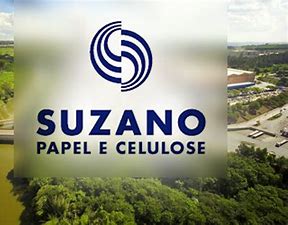Future unit will have capacity of 60,000 tonnes per year, increasing installed capacity by 35%
07/01/2022

Suzano, the largest producer of market pulp in the world, intends to invest R$600 million in a new tissue paper plant in Espírito Santo, increasing the installed capacity for this type of paper by 35%, to 230,000 tonnes. Today, it is 170,000 tonnes per year, which already places the owner of the Mimmo and Max Pure brands among the large local manufacturers.
The future plant, which will also convert toilet paper and paper towel, will be located in Aracruz and have a capacity of 60,000 tonnes per year, with an implementation period of two years. The execution of the project still depends on the approval of the board of directors and the signing of contracts with suppliers.
Suzano joined this market in 2018, initially focusing on the North and Northeast regions, where it is the leader with shares of 66% and 28%, respectively. After advancing into the Central-West and Southeast regions, it ended 2021 as the third largest player in this market, with a share of 11.2%.
The company has tissue production plants in Belém (Pará), Mucuri (Bahia) and Imperatriz (Maranhão), and converting units in Maracanaú (Ceará) and Cachoeiro de Itapemirim (Espírito Santo).
Suzano’s plan is to use remaining sales tax ICMS credits in the state to meet the new investment, which still depends on approval by the authorities. At the end of 2019, Suzano unveiled a first tissue project in Espírito Santo, with an investment of R$1 billion, also using ICMS credits accumulated due to its export activity in the state – Suzano has a pulp production unit in the city of Aracruz, which used to belong to Fibria.
In operation since the beginning of last year, the Cachoeiro de Itapemirim unit has the capacity to convert tissue paper into 30,000 tonnes of toilet paper per year, equivalent to 1 million rolls per day.
“Less than a year and a half later, we announced the plan to make another important investment in the state viable,” CEO Walter Schalka said in a note.
During the construction period, 300 jobs are expected to be generated. When operations start, about 200 employees will work at the unit.
According to the company, the potential investment is in line with the strategy “to advance in the links of the chain, always with competitive advantage, and to ensure the supply to the growing Brazilian market for sanitary products.”
*By Stella Fontes — São Paulo
Source: Valor International


/i.s3.glbimg.com/v1/AUTH_37554604729d4b2f9f3eb9ad8a691345/internal_photos/bs/2022/o/m/LOCvFkS9SuGVTHo3NIcA/19emp-100-celu-b4-img01.jpg)
/i.s3.glbimg.com/v1/AUTH_37554604729d4b2f9f3eb9ad8a691345/internal_photos/bs/2021/S/K/MibC0iTB2gp6cgB9kP8Q/011220suzano169.jpg)